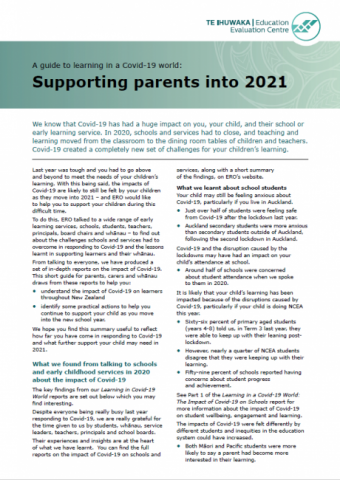Towards equitable outcomes in secondary schools: Good practice
Published: 29 May 2014
This report presents examples of good practice in student engagement and achievement. The examples come from a sample of secondary schools, rated decile 5 or below with rolls of 200 students or more, who had better outcomes for students than other similar schools. ERO visited seven of these schools to find out the secret to their success.
- Audience:
- Parents
- Schools
- Content type:
- Research
- Topics:
- Secondary
- Good practice
- Community
- Culture
- School community














